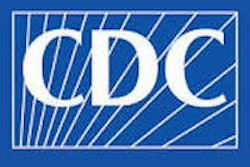
Poor oral health is associated with an increased risk of the most common form of liver cancer, according to a new study. Researchers analyzed data from nearly 470,000 patients in the U.K. for gastrointestinal cancer risk.
They found that more than 4,060 of these patients developed gastrointestinal cancer, with 13% of these cancer patients reporting poor oral health. While they did not find a link between poor oral health and gastrointestinal cancer risk, the team did find a substantial link between poor oral health and hepatocellular carcinoma.
"This study found an association between self-reported poor oral health and increased risk of hepatobiliary cancer, particularly hepatocellular carcinoma," wrote the authors, led by Haydée Jordão, a postgraduate research student at the Centre of Public Health at Queen's University Belfast (United European Gastroenterology Journal, June 17, 2019).
Liver cancer claims the lives of almost 60,000 people per year in the European Union, according to a Centre of Public Health press release. Up to half of the cases of liver cancer may be preventable, as risk factors include smoking, being overweight or obese, and consuming alcohol.
The researchers wanted to see if poor oral health (including gingivitis, periodontitis, and tooth loss) was associated with an increased risk of developing gastrointestinal and other cancers. They used data from the U.K. Biobank cohort study that included adults ages 40 to 69 from England, Wales, and Scotland, and the current study included almost 470,000 patients.
During an average follow-up of six years, the team identified 4,069 cases of gastrointestinal cancers, with 13% of these cancer patients self-reporting poor oral health.
After further analysis, the researchers found no association between self-reported poor oral health and detected gastrointestinal cancer; however, they did find that poor oral health was associated with an increased risk of hepatobiliary cancer. This link was stronger in patients who consumed fewer fruits and vegetables daily, were smokers, and were overweight or obese, or lived in more affluent socioeconomic areas.
The study authors noted that the U.K. Biobank cohort study did not offer a clinically accurate questionnaire to measure periodontitis or oral health status and that participating patients were generally healthier than other adults in the U.K.
They concluded that more research was needed, but their study did find an association between poor oral health and hepatobiliary tract cancers.
"An association between self-reported poor oral health and an increased risk of hepatobiliary tract cancers was observed, which was strongest for hepatocellular carcinoma," they wrote.



















